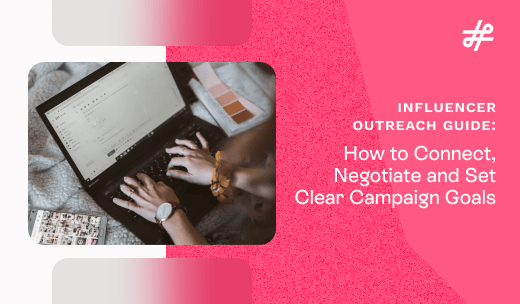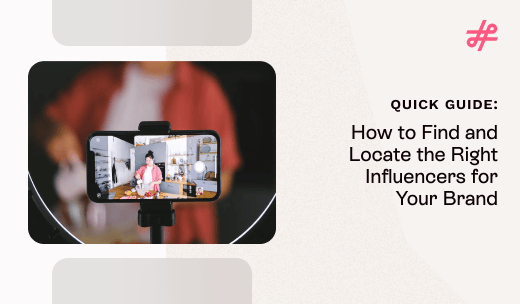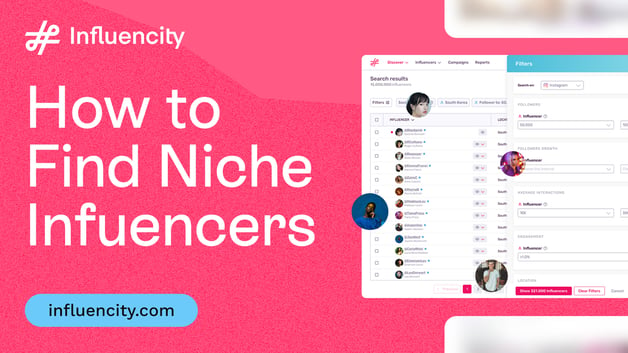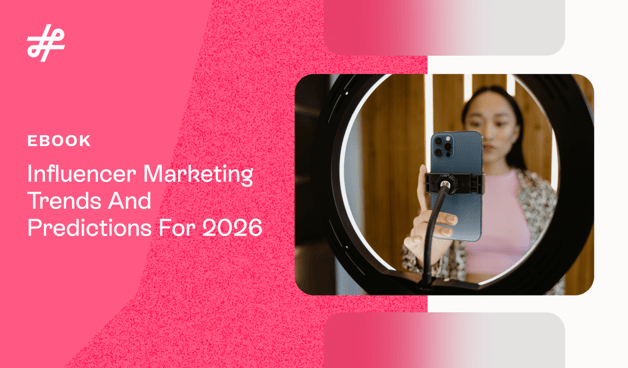What Is Brand Reputation? Significance and How to Improve It
Having a good brand reputation determines how your market feels about your company and whether or not they are likely to invest in your products or services. Regardless you’re a large or small company, your reputation can make or break you.
Your brand reputation is also important when it comes to digital marketing. Unless your target audience trusts and believes in you, then your influencer marketing campaigns are unlikely to succeed. However, the good news is that the message and right campaign can help you boost your brand reputation.
What Will You Learn?
Why Does Brand Reputation Matter?
How to Build and Strengthen Your Brand Reputation
Examples of Good Brand Reputation
Lessons from Poor Brand Reputation Practices
What is Brand Reputation?
Brand reputation is the overall perception of a company’s image as seen through the eyes of its customers, stakeholders, and the public. It’s shaped by how people view your products or services, customer support, marketing, social media presence, and the values your company promotes. In short, it’s what people think and feel when they hear your brand’s name.
Every detail plays a role in building or breaking your brand reputation. A thoughtful reply to a customer question, a well-written post, or even how you respond to criticism can strengthen trust and loyalty. On the other hand, a single bad experience or misstep can damage how people see you and impact your bottom line.
The numbers say it all. According to Edelman, 81% of consumers need to trust a brand before they’ll buy from it. Similarly, Stackla found that 86% of people care about authenticity when deciding which brands to support. These stats show that your reputation isn’t just about looking good: it’s essential to your success.
Why Does Brand Reputation Matter?
A strong brand reputation is one of the most valuable assets a business can have. It builds customer loyalty, turning your buyers into brand advocates who naturally spread the word about your company. This kind of loyalty is especially important in competitive markets because it helps your business grow, launch new products, and even enter new markets with confidence. In fact, 90% of consumers say they are more likely to trust a brand recommended by a friend.
Let’s expand now on why it's so important to maintain a positive brand reputation.
Benefits of Building a Positive Brand Reputation
A positive brand reputation:
- Increases customer trust, loyalty and repeat business.
- Enhances brand value and equity. Strong reputations lead to higher brand equity, contributing to increased market share and profitability.
- Attracts better talent. Good reputations draw in skilled employees, enhancing innovation and overall performance.
- Facilitates higher pricing power. Reputable brands can command premium prices due to perceived quality and reliability.
- Improves crisis management. A positive reputation provides resilience in crises, maintaining customer loyalty during challenging times.
- Boosts word-of-mouth marketing. Satisfied customers are likely to recommend trusted brands, organically expanding their reach and customer base.
- Increases investor confidence. Positive reputations attract investors, signaling stability and growth potential.
- Creates a competitive advantage. In saturated markets, a good reputation differentiates a brand from its competitors.
- Boosts customer engagement. Positive perceptions lead to more customer interaction, yielding valuable insights and stronger relationships.
- Facilitates expansion and growth. An established reputation makes it easier to enter into new markets and launch new products, leveraging existing customer goodwill.
In contrast, if you have a bad reputation then you will almost certainly isolate yourself from your target market and fall behind as a business. In fact, 94% of consumers claim that a negative review is often enough to put them off a business. This demonstrates the immense influence of public perception on a brand's ability to attract and retain customers.
Moreover, today’s consumers care more than ever about what a brand stands for, with 83% of millennials preferring to buy from brands that share their personal values, reflecting a growing expectation for businesses to act ethically and responsibly.
That’s why it’s so important to carefully manage your reputation at each and every touchpoint. A single misstep can send your reputation into a tailspin, and once that happens, it’s incredibly hard to bounce back. But by staying true to your values and being thoughtful about how you communicate, you can build trust and protect your brand from unnecessary risks. After all, a good reputation is one of the most valuable things a business can have.
How to Build and Strengthen Your Brand Reputation
As we just mentioned, having a good brand reputation is important to guarantee the success of your business and your influencer marketing campaigns. But building and strengthening a strong reputation isn’t a one-off task; it’s something you need to work on all the time. Your brand reputation strategy needs to be both proactive and reactive. You need to constantly feed the opinions of the public, reinforce their belief in your positive brand image, and adapt to maintain relevance and trust. You also need to make sure that you hire the right influencers and implement the right strategies to amplify your efforts.
Here are some valuable strategies to help you build and strengthen your brand reputation.
1. Build and Reinforce a Strong Brand Identity
Your identity is the foundation of your brand reputation. It’s how people recognize, remember, and connect with your business. It’s not just your logo or tagline; it’s the values you stand for, the promises you make, and the way you show up in every interaction. When you have a clear, consistent identity, it builds trust and makes people feel confident choosing your brand. But it doesn’t stop there; strengthening that identity means constantly communicating who you are and evolving to stay relevant while staying true to your core mission and vision.
For instance, Coca-Cola has built a brand identity around happiness and togetherness, consistently reflected in its campaigns and messaging for over a century. That consistency is key to their global recognition.
Pro Tip: Create a brand style guide that includes your mission, values, voice, and visuals, and make sure everyone on your team follows it. Consistency builds credibility.
2. Harness the Power of Influencer Marketing
Influencer marketing is a game-changer when done right. It’s all about tapping into the trust and authenticity influencers have built with their followers. When influencers genuinely love your product and share it, their audience takes notice. This can help your brand reach more people and also feel more relatable and trustworthy. But strengthening your brand reputation through influencers requires finding the right fit. In other words, someone whose values and audience align with your brand.
Take Gymshark, for example. By partnering with fitness influencers, they transformed from a small startup into a globally recognized brand. Influencers made their message personal and relatable, giving their audience a reason to trust Gymshark.
Pro Tip: Do your research before choosing influencers. Look for those whose followers align with your target audience and whose values match yours. Authenticity is everything.
3. Send Out the Right Messages
Every message your brand puts out into the world matters. It’s not just about what you say: it’s about how you say it and who’s saying it for you. If your messaging doesn’t align with your core values, it can confuse or alienate your audience. This is especially important when working with influencers because one wrong post can undo years of hard work. Strengthening your messaging is about being intentional and clear.
For example, when Pepsi released a controversial ad in 2017, the backlash was swift, showing how a misaligned message can hurt even a major brand.
Pro Tip: Before launching a campaign or collaborating with influencers, make sure they fully understand your brand’s values and key messages. Clarity and alignment are essential.
4. Create The Right Types of Campaigns
Campaigns are your chance to showcase who you are and what you stand for, so make them count. A strong campaign isn’t just about selling a product; it’s about building trust, adding value, and strengthening your reputation. Think about the kind of content your audience will find meaningful, whether it’s an explainer video, a cause-driven initiative, or a story that highlights your commitment to quality.
Dove’s “Real Beauty” campaign is a great example. It not only sold products but also reinforced their values of authenticity and inclusivity, making a lasting impression on consumers.
Pro Tip: Focus on campaigns that align with your brand’s values and tell a story. Trends are great, but staying true to your identity will have a much greater impact.
5. Implement Corporate Social Responsibility (CSR)
CSR isn’t just a buzzword: it’s a powerful way to show that your brand cares about more than profits. Whether it’s supporting environmental causes, giving back to your community, or prioritizing fair labor practices, CSR initiatives build trust and goodwill. When people see that your company is making a positive impact, they’re more likely to support and recommend you.
Patagonia is a leader in this space, with initiatives like donating 1% of sales to environmental causes and encouraging sustainability. It’s helped them build a reputation as a socially responsible brand.
Pro Tip: Choose CSR initiatives that align with your values and communicate them transparently. People appreciate honesty and effort, even if you’re still a work in progress.
6. Engage on Social Media
Social media is where your brand meets your audience in real-time. It’s an opportunity to connect, listen, and build relationships. By engaging with comments, answering questions, and sharing meaningful content, you can create a more human and approachable image for your brand. But strengthening your social media presence means being consistent, responsive, and genuine.
Wendy’s is a great example of a brand that engages effectively, using humor and timely responses to connect with their audience in a relatable way.
Pro Tip: Don’t just post and leave. Stay active, respond to comments, and show your personality. A little engagement can go a long way in building loyalty.
7. Leverage Public Relations and Media Outreach
Public relations isn’t just about damage control; it’s about sharing your story with the right audience in the right way. Whether it’s through press releases, partnerships, or community events, PR helps boost your credibility and strengthen your brand reputation. Positive media coverage can showcase your brand’s values and accomplishments, giving people more reasons to trust you.
Tesla, for example, generates consistent media buzz by highlighting their innovation and leadership in sustainability.
Pro Tip: Build relationships with journalists and media outlets in your industry. When you have news or milestones to share, they’ll be more likely to cover your story.
8. Foster Brand Advocacy
Your happiest customers and employees can be your greatest advocates. When people have a positive experience with your brand, they’re more likely to share it with others, whether that’s through a glowing review, a social media post, or a referral. Encouraging advocacy helps build trust and strengthens your brand reputation organically.
For example, Apple’s loyal customer base often shares their love for its products, creating word-of-mouth buzz that’s invaluable.
Pro Tip: Encourage advocacy by creating referral programs or sharing user-generated content. Highlighting real stories builds authenticity and trust.
9. Invest in Thought Leadership and Content Marketing
When your brand is seen as a thought leader, it automatically strengthens your brand reputation. Sharing valuable insights, expertise, and solutions through blogs, webinars, and whitepapers not only attracts attention but also builds trust and authority in your industry.
HubSpot is a standout example, offering a wealth of free resources that have made them a go-to authority in marketing and sales.
Pro Tip: Focus on creating content that solves real problems for your audience. The more value you provide, the more they’ll trust and respect your brand.
10. Focus on Employee Satisfaction
Finally, don’t forget about the power of your most important assets in building brand reputation: your employees. Why? Because happy employees are a reflection of a strong brand. When your team feels valued and engaged, they become natural ambassadors for your company, sharing their positive experiences with others. Investing in your employees strengthens not just your internal culture but also your external reputation.
Google’s emphasis on employee well-being, through perks and growth opportunities, has helped them build a brand reputation as one of the best places to work.
Pro Tip: Regularly check in with your employees through surveys or feedback sessions. Acknowledge their contributions publicly as it shows you value their work and fosters loyalty.
Examples of Good Brand Reputation
Building a strong brand reputation is all about earning trust, loyalty, and goodwill from your customers. Some companies do this exceptionally well. Take Apple, for example. Known for its innovative products and focus on user experience, Apple has built a loyal following that keeps coming back for more. People trust the brand to deliver quality and cutting-edge technology, which is why Apple is consistently ranked as one of the world’s most admired companies. In 2024, it was even named the best-managed company, which shows how well it balances innovation and customer satisfaction.
Another standout is Patagonia, a brand that has built its reputation on sustainability and doing the right thing for the planet. They’re transparent about how their products are made, using sustainable materials and ethical practices. Patagonia also donates 1% of its sales to environmental causes (as we saw earlier in the post), which has made it a favorite among eco-conscious shoppers. It’s not just about selling clothes: it’s about making a positive impact.
Costco is another great example. They’ve earned a reputation for offering high-quality products at fair prices and treating their employees well. People appreciate their no-nonsense approach to value and fairness, which has created a loyal customer base that trusts them completely.
These brands show that a good brand reputation isn’t just about advertising: it’s about delivering on your promises, staying true to your values, and showing customers that you care about more than just profits. That’s what really builds trust and loyalty.
Influencers Who Helped Build Strong Brand Reputations
Influencers can make a huge difference when it comes to building a brand’s reputation. A great example is Marques Brownlee (MKBHD). His honest, in-depth reviews of Apple products, like iPhones and MacBooks, have highlighted the brand’s quality, innovation, and design. Marques has a way of breaking down tech in a way that’s both insightful and trustworthy, making Apple’s reputation as a leader in technology even stronger among his millions of followers.
Another example is Alex Honnold, the world-famous rock climber and environmental advocate. As a Patagonia ambassador, Alex often talks about their durable gear and environmental efforts, like protecting public lands. His alignment with Patagonia’s values and his credibility in the adventure community have helped the brand stand out as a leader in sustainability.
Then there’s Kumiko Love, also known as The Budget Mom. She regularly shares how Costco helps families save money without cutting corners on quality. Her tips on bulk-buying and her love for Costco’s employee-friendly policies have made her posts relatable and valuable for her audience. It’s no surprise that she’s helped strengthen Costco’s reputation as a trusted, family-friendly retailer.
Lessons from Poor Brand Reputation Practices
A damaged brand reputation can happen quickly and have long-lasting effects, often because of decisions that break trust with customers. One of the most infamous examples is Volkswagen’s emissions scandal. The company was caught using software to cheat emissions tests, making its cars appear more environmentally friendly than they were. This revelation shattered its reputation for reliability and ethics. Volkswagen faced massive recalls, legal penalties, and a major loss of trust from consumers, showing how dishonesty can deeply harm a brand.
Another example is United Airlines, which faced global outrage in 2017 after a passenger was forcibly removed from an overbooked flight. Videos of the incident went viral, and the company’s initial response only made things worse. Instead of taking responsibility, United focused on defending its policy, which made customers feel the airline didn’t care about them. The backlash highlighted how poor customer service and mishandled crises can severely damage a company’s image.
Lastly, Facebook (now Meta) has struggled with trust issues following data privacy scandals, such as the Cambridge Analytica incident. Users felt their personal information was mishandled, leading to widespread criticism and a decline in public trust. This example shows how failing to prioritize user privacy and transparency can erode confidence in a brand.
Ultimately, these cases underline the importance of ethical practices, strong crisis management, and listening to customer concerns. Once trust is broken, whether through dishonesty, bad service, or neglect, it can take years to win it back. By staying honest, taking responsibility, and putting customers first, companies can protect their brand reputation and build lasting loyalty.
Tags:




















%20and%20How%20Can%20They%20Benefit%20Your%20Brand%20article.jpg?length=628&name=What%20Are%20Key%20Opinion%20Leaders%20(KOL)%20and%20How%20Can%20They%20Benefit%20Your%20Brand%20article.jpg)









